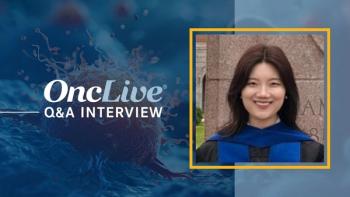
Mantle Cell Lymphoma: Evolution of Therapy
Transcript:
Brad Kahl, MD: The incidence of mantle cell lymphoma is about 4000 new cases each year in the United States. Mantle cell makes up about 6% of all new non-Hodgkin’s lymphoma diagnoses each year.
Mantle cell lymphoma is a recently relatively recognized lymphoma subtype. It wasn’t really until the mid-90s that it became apparent that this was a unique entity within non-Hodgkin’s lymphoma, so we really don’t have a lot of going back before that telling us the natural history or outcomes. When it became clear that mantle cell lymphoma was a unique and distinct subtype of lymphoma, typical lymphoma therapies were utilized, things like CHOP chemotherapy. And then retrospectively, folks were able to go back and look at outcomes using standard-type therapies. It became obvious pretty quickly that standard lymphoma therapies were inadequate in mantle cell lymphoma. And the outcomes were not very good with CHOP chemotherapy. When rituximab was added, outcomes were not much better, and so it led to a whole cascade of research in mantle cell lymphoma that has led to an improvement in outcomes.
The biggest unmet need in mantle cell lymphoma is the fact that we still don’t cure it reliably. We have gotten much better at controlling the disease and helping people live longer with their disease. So, that’s a major achievement. When I came out of my fellowship 16 or 17 years ago now, the median survival for a newly diagnosed mantle cell lymphoma patient was only 3 years. And it’s probably closer to 10 years now, so really the outcomes have improved markedly, but we still are unable to cure that disease. There’s lots of room for improvement.
Transcript Edited for Clarity




































